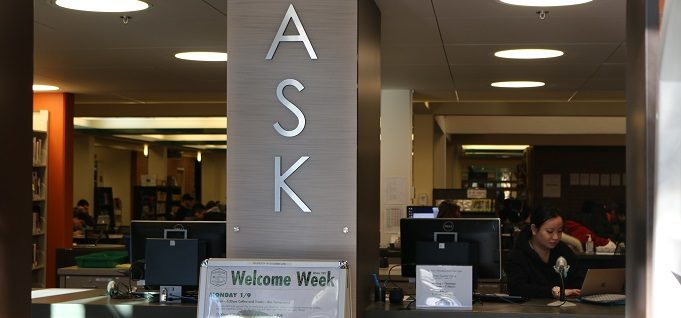Open for business
By Douglas J. Guth
February 1, 2018
Personalized customer service is helping students to engage and achieve at Shoreline Community College.
While Shoreline Community College (Washington) doesn’t hew to any specific corporate philosophy, school officials have applied personalized customer service as a basic strategy campus-wide.
“Students are our top priority, and if an individual comes into the office, everyone stops to take care of whatever they need,” says Shoreline Vice President of Advancement Mary Brueggeman. “We are here to help them.”
President Cheryl Roberts says Shoreline’s vision is one of inclusiveness and support, with the national #youarewelcomehere hashtag movement fueling student engagement from recruitment onward.
“The focus is on helping students complete what they start, whether it’s a course, certificate or degree,” Roberts says. “We don’t ask what students are majoring in; we ask them what they’re curious about. What is their educational aim and how can Shoreline be a unique experience for them?”
The college’s core value of commitment extends beyond the academic, Roberts adds.
“What is it that a student needs from us?” she says. “It could be tutoring, housing, food or someone to help with scholarship dollars. What is it you need right now to be successful? What’s on your mind right now? That’s where we’re changing the culture. We focus on what a student needs at that moment.”
In 2016, Shoreline distributed a survey aimed at current students and soon-to-be high school graduates that helped shape the college’s intimate recruitment and retention methodology. Learners want direct engagement in every aspect of their college careers, officials discovered. Even seemingly small touches like knowing a student’s name makes them feel welcome and connected, a level of service that reflects the college’s tagline of “Engage. Achieve.”
“‘Engage. Achieve.’ is a two-way process,” says Martha Lynn, executive director of communications and marketing. “We’re supporting students in any way we can. We’re walking them along their journey and making sure we’re engaged with them.”
During start-of-year orientations, attendees get a comprehensive tour of campus facilities and have a full complement of faculty available to answer questions on course registration, schedules and other aspects of college life. Additional orientation events are held after holiday breaks to further drive home the idea of campus as a supportive environment.
“Students don’t just want to be talked at for two hours,” Roberts says. “We want to hear from them on what it’s like to be here.”
First look: This is an excerpt from an article featured in the upcoming February/March Community College Journal.



